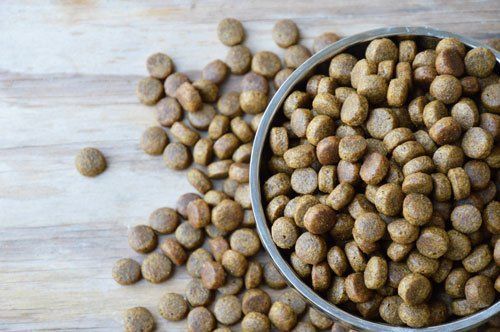When Is Prescription Food for Your Dog the Right Choice?
11 June 2018

Your dog acts as a companion and protector. For most dog owners, canines are valued members of the family that are treated with love and adoration. Since a domesticated dog is incapable of selecting his or her own food source, it is your responsibility as a pet owner to provide food that will meet the nutritional needs of your dog.
Most dogs will thrive on the pet foods found in retail stores, but some dogs require specialized nutrition in order to address disease or physical shortcomings. These animals can benefit from a prescription diet supplied by an experienced veterinarian.
Take the time to carefully examine your dog's needs as you determine whether or not a prescription diet is in the best interest of your four-legged friend.
Gastrointestinal Problems
Many dogs suffer from gastrointestinal problems that can affect the way their bodies absorb food. A dog that eats people food with a high fat content, suffers from constipation, or has inflammation within the intestinal tract may need a specialized diet in order to ensure proper nutrition.
Prescription dog foods that are designed for dogs that suffer from gastrointestinal problems are highly digestible so that the nutrients within them are more available to the animal. These specialized dog foods are typically low in fat and fiber so that they don't trigger a negative response within the gastrointestinal tract when eaten.
Work with your veterinarian to find a prescription dog food that will alleviate the symptoms of gastrointestinal discomfort (like vomiting, diarrhea, and dehydration) and improve your dog's health in the future.
Food Sensitivity
Just as some people can be allergic or sensitive to certain foods, dogs can experience food sensitivity as well. Many of the sensitivity issues that plague dogs can be traced back to the protein source within a specific dog food.
Protein plays an essential role in the daily function of a dog's body. Although protein is essential, some protein sources can be difficult for dogs with food sensitivities to digest. Prescription dog foods often contain hydrolyzed proteins. These are proteins that have been broken down into smaller parts in order to make them easier for your dog to digest.
If your dog has been diagnosed with a food allergy or shows evidence of being sensitive to over-the-counter dog foods, try feeding him or her a prescription dog food with a hydrolyzed protein to improve his or her health.
Weight Problems
Domesticated dogs might not get all the exercise they need to maintain a trim physique. Excess weight can pose a serious health risk for your dog.
Carrying around a few extra pounds can place stress on your dog's skeletal system, resulting in serious joint problems down the road. An overweight dog can also experience cardiovascular problems as the heart works harder to support the additional body weight.
Your veterinarian will weigh your dog at each appointment. Weight gain should be addressed with a prescription diet that is low in carbohydrates and has a high fiber content. The added fiber helps your dog feel full without adding calories to his or her daily diet. Your veterinarian will be able to assess your dog's unique weight management needs and recommend a prescription food that will help keep his or her weight within a healthy range.
The quality of the food that you feed to your dog matters. If your dog is suffering from gastrointestinal problems, is sensitive to certain foods, or has gained weight recently, investing in a prescription food might be beneficial. Contact
Pet Medical Center of Vero Beach to discuss your dog's unique nutritional needs and discover if a prescription dog food can improve your pet's health.
If left untreated, roundworms and hookworms can cause serious health problems for your pet. Read about the signs in this blog and how to take action.
Many pet owners overlook the importance of dental health in their pets. Read this blog to learn why dental health is so important for your animal companion.
Your beloved pets, whether our loyal canines or our independent felines, play an integral role in your life. Read on to learn how to manage their stress.
Dogs can suffer from a plethora of digestive issues. But how can you tell if your pup has any digestive issues? Discover some key signs to look out for.
A tick’s bite can spread deadly diseases to you and your pet. Learn about a few tick-borne conditions your pet may contract if they spend time outside.
Has your animal's hair changed? Discover what this might mean and if your best friend might need treatment for their potential problem.
Prepare your puppy for its first vet visit to avoid challenges during a medical examination. This post highlights five ways to help your puppy.
If your dog is pregnant, you might feel unprepared. Read this blog to learn everything you should know about canine pregnancy, labor, and delivery.
A surgery is an invasive procedure that requires preparation to ease your cat and ensure a smooth recovery. Discover tips to prepare your cat for surgery.
Just like humans, pets can face various health issues. Learn about the most common conditions that pets face and how to avoid and treat them.





